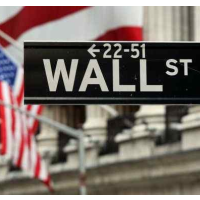3 Biggest U.S. Banking Regulatory Agencies Seek to Restrict Risky Investments by Wall Street
 (photo: Stan Honda, AFP/Getty Images)
(photo: Stan Honda, AFP/Getty Images)
By Nathaniel Popper, New York Times
Regulators are seeking to impose further restrictions on the ability of Wall Street banks to make risky investments with their own money.
If the new rules proceed, banks will be prohibited from buying and selling commodities, like copper, and would have to shut down what remains of their in-house private equity operations.
The biggest banks have already been scaling back these businesses, but Goldman Sachs continues to have significant operations in these areas.
Most of the recommendations are unlikely to take effect soon because they would need to be passed by Congress. But the Office of the Comptroller of the Currency is moving to immediately prohibit banks from buying and selling copper.
The proposed rules were in a long-awaited report released Thursday from the three largest banking regulatory agencies: the Federal Reserve, the Office of the Comptroller of the Currency and the Federal Deposit Insurance Corp.
The agencies were required to issue the report by the 2010 Dodd-Frank financial overhaul. The report was supposed to be completed years ago.
The most significant new rules were proposed by the Federal Reserve, which oversees all of the nation’s largest banks.
The Fed suggested that Congress bar banks from getting involved in the physical commodities markets, which a 1999 law allowed Goldman Sachs and Morgan Stanley to do.
The Fed also said that Congress should prohibit banks from so-called merchant banking, which generally involves owning large, private equity-like stakes in outside companies.
These sorts of activities have already been restricted by the so-called Volcker Rule in Dodd-Frank, which prohibits banks from making many types of speculative bets with their own money.
These investments have been further restricted by the annual regulatory stress tests, which essentially penalize banks for owning illiquid assets.
But the banks’ continuing role in these markets was put under the spotlight by the Senate Permanent Subcommittee on Investigations in 2014.
A report from the committee focused, in particular, on the role that banks like Goldman Sachs and Morgan Stanley play in the physical commodities market, owning oil tankers and coal mines.
Morgan Stanley said at the time that it was selling these businesses, but Goldman Sachs stated its intention to continue with its operations.
Spokesmen for each bank declined to comment on the new report.
The most consequential recommendation from the report, if Congress moved ahead on it, is the proposed ban on merchant banking activity. This would probably make it all but impossible for the banks to run their in-house private equity funds, in which they generally have ownership stakes.
The Fed said in the new report that the merchant banking operations pose risks to the “safety and soundness” of the banking system.
To Learn More:
Wall Street Stock Loan Schemes Take Billions from Taxpayers in Germany and 20 Other Nations (by Cezary Podkul, ProPublica, and Allan Sloan, Washington Post)
Big Banks Back to Old Tricks Bundling Loans and Mortgages for Investments (by Matt Bewig, AllGov)
Investment Banking Cartel More Concentrated than Ever, Drops to 5 (by Noel Brinkerhoff and David Wallechinsky, AllGov)
- Top Stories
- Unusual News
- Where is the Money Going?
- Controversies
- U.S. and the World
- Appointments and Resignations
- Latest News
- Musk and Trump Fire Members of Congress
- Trump Calls for Violent Street Demonstrations Against Himself
- Trump Changes Name of Republican Party
- The 2024 Election By the Numbers
- Bashar al-Assad—The Fall of a Rabid AntiSemite






Comments